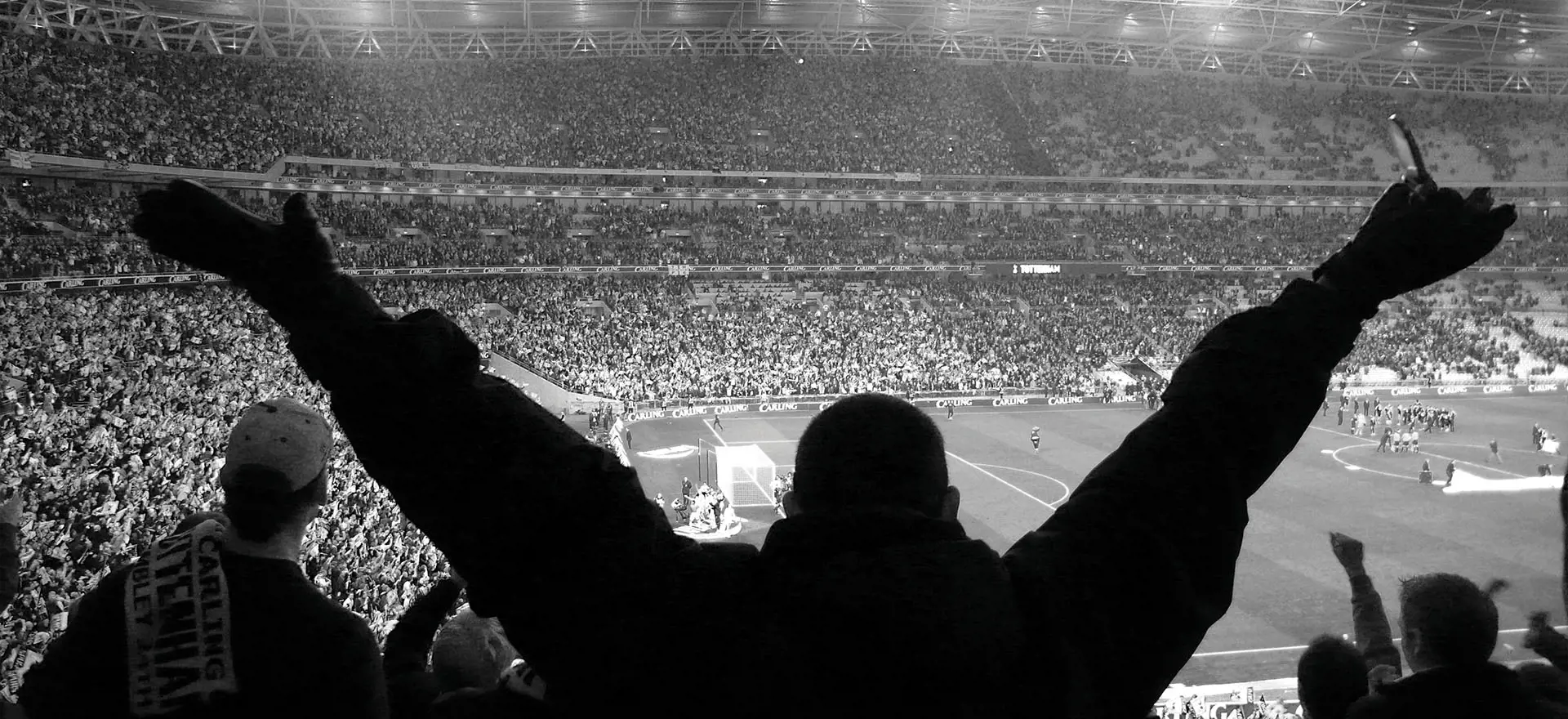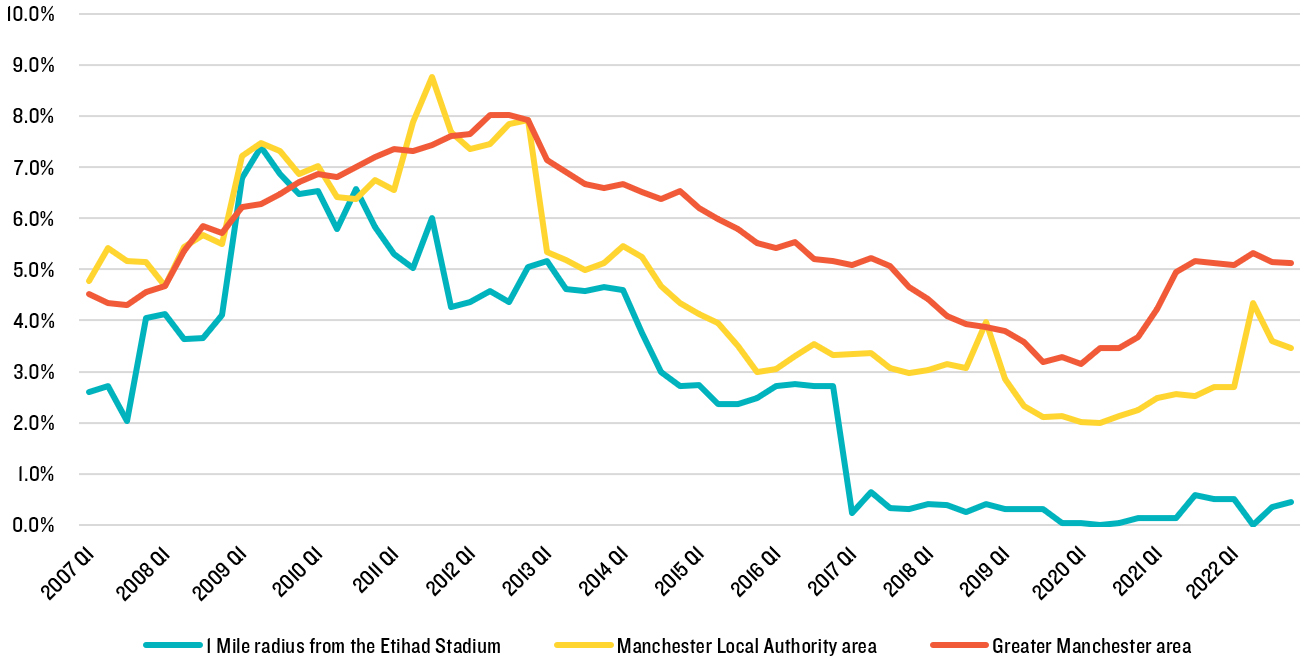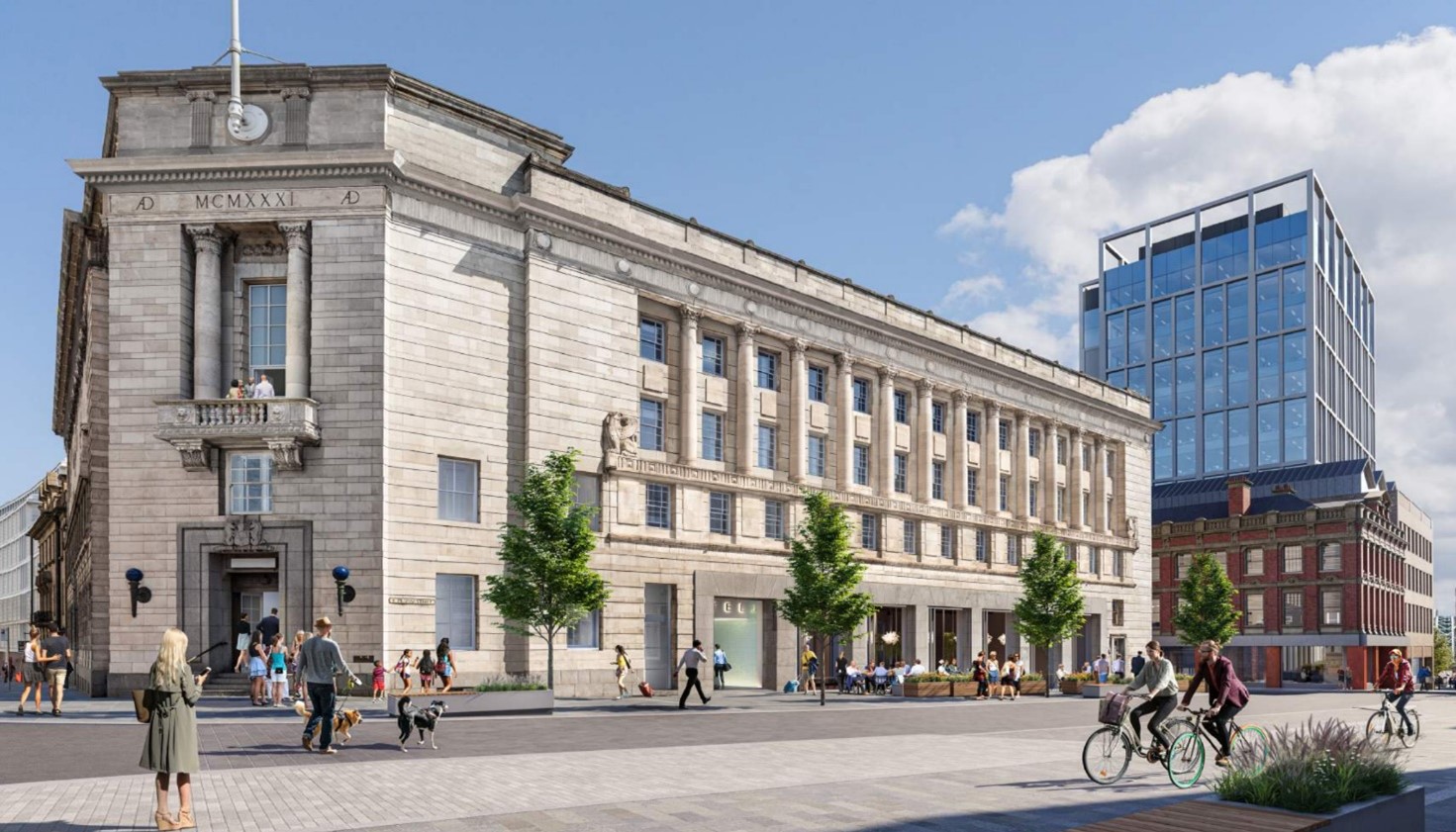Improved football, increased tourism and inward investment. The potential impacts that Newcastle United FC’s 2021 takeover could have are endless.
Just over one year on since the takeover of Newcastle United and step one of the short-term project has already been completed – secure premier league survival for the 2022-23 season. A trip to Wembley (coincidently a Lichfields flagship project) now awaits, as the football club looks to secure its first piece of domestic silverware since 1955 at the Carabao Cup Final on February 26th.
The new owners, fronted by PCP Capital Partners CEO Amanda Staveley, have already funded mammoth levels of investment into improving the playing squad and training facilities, injecting a reported £450m since the completion of the takeover in October 2021
[1]. Whilst this notable level of investment has already yielded benefits on the pitch, it is the economic spill-over effect of footballing success and wider positivity of the people which may yet deliver the longer-term benefits for Newcastle as a city. Indeed, there is no doubt that Newcastle United is embedded into the fabric of the city, and thus when the football club prospers, so does the city’s economy.
Pre-match
The takeover of Newcastle United bears resemblance to that of the Manchester City takeover by Sheikh Mansour in 2008. In those 14-years since, the city of Manchester has flourished in both a footballing and economic sense: Manchester City now have 6 premier league titles to their name; and the city of Manchester has experienced an increase in employment of 18.2% between 2015 and 2021
[2] (representing three and a half times the national growth rate of 5.3% and within the top 3% of all Great Britain local authorities). Manchester City Council states
“This is testament to the construction boom delivering high-quality office workspaces, reflecting the development momentum of the past ten years.”[3]
Manchester City Council further forecast that:
-
An additional 40,000 people will live in the city centre by 2026, increasing the population to 100,000; and
-
An additional 65,000 jobs will be created in the city centre, increasing employment to 315,000 by 2040.
Given the extraordinary scale of difference in wealth between the two football clubs, with Newcastle United’s owners now worth an estimated £320 billion in comparison to Manchester City’s £22.9 billion, the potential economic impact across the North East may be greater still.
In order to understand what impacts could potentially arise for the city of Newcastle and the wider North East region, it is first important to understand how Manchester has been impacted upon following the Manchester City takeover and what the key lessons are. The bullet points below summarise the major impacts that have been demonstrated over the last 15 years:
Boosting the Greater Manchester economy by contributing towards the £1.1bn worth of Gross Value Added (‘GVA’) generated solely by Manchester’s Premier League clubs in 2019/20
[4]. This total represents 2.2% of the total 2019 GVA of Greater Manchester
[5] (a value dampened by the impact of Covid-19 towards the end of the season). By way of comparison, the second largest employing industrial group (retail trades) generates only 6.3% of Greater Manchester’s GVA, despite having over 100,000 more people employed in the sector;
Infrastructure investment into the club’s assets. The construction of a new football academy was estimated to have a total public value in the order of £206m including: £89m from permanent job creation; £89m from improved educational outcomes and health benefits; and £28m from visitor spending; and
Supporting an increased number of jobs created, in part, from the ever growing (and increasingly globalised) fan base of the club due to the recent success.
Increasing demand for local commercial and office space. Data obtained using CoStar indicates that vacancy rates for retail and office space currently stand at almost 0% in the 1-mile radius from the Etihad Stadium. This represents a decline of 94% since the takeover materialised (Q3 2008 – Q4 2022). As a benchmark – despite broadly similar vacancy rates at the time of the takeover – vacancy rates have decreased at a lower rate across Manchester local authority area (-52%) and Greater Manchester (-17%) over the same period.
Retail and office vacancy rates in Manchester (2008 – 2022)
Source: CoStar / Lichfields analysis
Kick off
So, what can be taken from the above impacts with regards to the Newcastle takeover? Firstly, success on the pitch will be the primary driving factor in which the football club impacts the local economy. It is a simple mechanism – the better the results, the higher the matchday attendance – which will naturally lead to greater expenditure in local pubs, bars and restaurants as fans socialise before and after matches. Indeed, the tourism and leisure sectors benefit greatly from football, particularly as the sport provides a level of consistency and certainty during months where tourism and leisure activity would otherwise be low.
Hotel occupancy rates in Newcastle soar on a match-day, but currently that only occurs around 20 times a year with the football club competing in domestic competitions only. Notwithstanding this, a considerable proportion of away fans generally travel to the North East on a matchday from elsewhere in Britain, with Newcastle United offering a generous 3,000 away seat allocation at their St. James’ Park Stadium.
So, how can Newcastle as a city further reap the benefits from the success of its football club? The answer – European football.
If Newcastle achieve their aspirations of continental football, there will be more match-days with the added element of visiting foreign fans. Attracting foreign fans to the city is beneficial - data from VisitBritain suggests that foreign tourists spend up to 3-times more than domestic tourists; with a far larger proportion of overseas fans requiring a hotel for match-days. Indeed, Newcastle as a city appears to be in good stead to accommodate prospective increased foreign tourism in the future, with three recent planning approvals for multi-million-pound hotels in the city centre. This includes land at Newcastle Gateshead Quays, whereby Lichfields secured full planning permission for the development of a dual-branded hotel comprising of 327 guest bedrooms, forming part of a wider mixed-use leisure proposal.
Refreshingly, the new owners are showing long term commitment to invest in the city’s tourism sector, with Taras Properties (owned by the Reuben Brothers who now own a 10% share of the football club) recently securing planning permission for the refurbishment of the Grade II Listed Fire Station on Pilgrim Street into a new luxury hotel, along with a restaurant, bar and pavement café. Not only will this development help secure the built infrastructure required to promote Newcastle as a ‘tourist location’, but it also exemplifies the confidence the new owners have in investing in the city’s built environment, generating developer confidence to invest in the North East.
Figure 1: Former Pilgrim Street Fire Station which is set to be refurbished into a new luxury hotel
Source: Ryder Architecture
Second half
Since the takeover gained premier league approval, the new owners of Newcastle United have obtained planning permission for the much-needed redevelopment of the club’s ageing training ground, Darsley Park. It is however likely that this is only a short-term fix of a longer-term solution - whilst redevelopment of Darsley Park will improve the overall facilities and catch up on the lack of investment in recent years, the new owners have previously spoken about developing a new training ground in a different location. Indeed, both the redevelopment of Darsley Park alongside the development of a new training ground will support a number of construction jobs and generate uplifts in economic output through inward investment. In addition, this longer-term plan presents the opportunity to develop a state-of-the-art facility that can act as a statement piece to attract new, world-class players, which in turn will assist with the globalisation of the football club.
Newcastle United has also recently taken up the opportunity to replicate Manchester City by investing in community facilities within the city, improving the educational and health profile of the local community. In March 2022, the Newcastle United Foundation moved into their new £8 million city centre home known as NUCASTLE, which provides community space located within the backdrop of St James’ Park. The new hub has been designed to support thousands of lives through a range of educational, sport, personal development and wellbeing programmes, reinforcing the strong link between the football club and the local community. Of course, the
community goals of a football club in the modern era goes beyond just winning matches on the pitch – they now have an important role in giving back to society.
This relationship between Newcastle United and the local community has been fully embraced by the new owners, who themselves have shown commitment to support important charitable work and promote diversification throughout the football club through investing in the women’s team and grassroots football. Indeed, the community feel of a football club is imperative in order to sustain a ‘feel-good factor’ amongst supporters, which in turn will stimulate economic uplift.
The upgrade and possible expansion of St. James’ Park is also likely to be on the agenda for improving the club’s assets and attracting larger attendances. The football ground is rather unique in the sense that it is one of very few football stadia situated within a highly accessible city centre location, supported by a wealth of nearby restaurants, bars and hotels. Indeed, St James’ Park is well-renowned as a ‘fan’s favourite away day’ due to its location and prominence, with the venue commonly selected for other major sporting events which in the past has included Olympic Football, Rugby Union and Rugby League competitions. In this context, the club’s new owners have publicly expressed their desire to invest in the stadium in order to secure its long-term future. This does not come without considerable planning challenges however, given the existing Grade-I listed heritage status of Leazes Terrace to the east of the stadium; and the impending plans to develop land beyond the Gallowgate Stand to the south for a mixture of commercial and residential uses.
Full Time
Football can have a huge impact on the local area, even benefiting those that don’t have an interest in the sport. In this context, it’s an exciting time to be a stakeholder in Newcastle – met by a lot of anticipation. We at Lichfields are well-placed to provide effective planning and consultancy services to maximise the benefits that any investment in developments across the city and wider North East region could have.
[1] SportsPro Media
[2] Business Register and Employment Survey (2021)
[3] https://www.manchester.gov.uk/info/500002/council_policies_and_strategies/8296/future_manchester_an_economy_built_on_people_place_and_prosperity
[4] EY: Premier League – Economic and social impact
[5] ONS Regional Gross Value Added by industry





